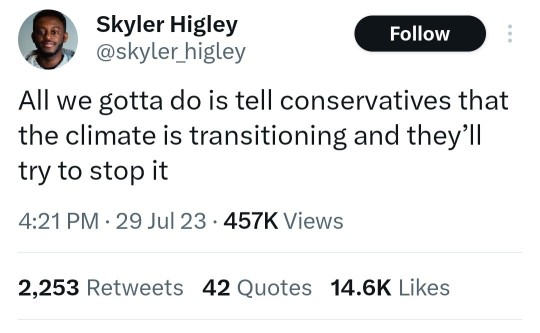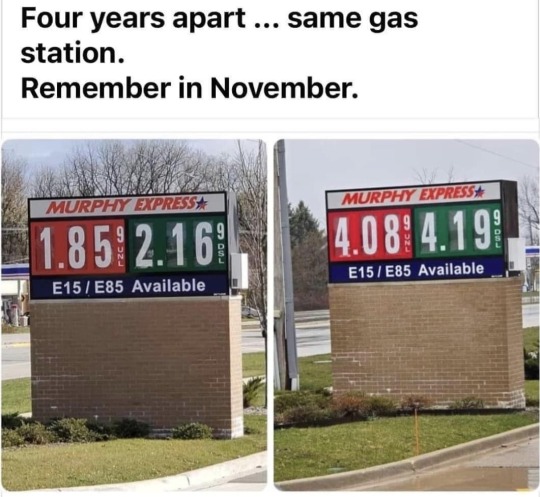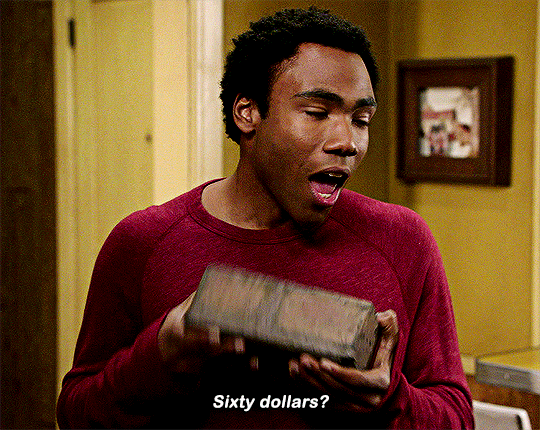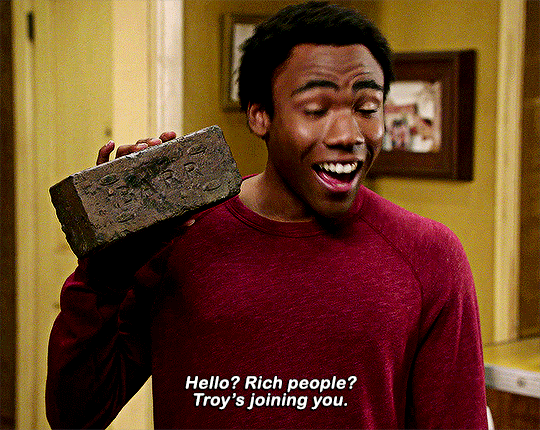#climate communism
Link
Top Bank Launches Payment Tracking System to Crack Down on Meat Purchases
A major international bank has launched a new payment monitoring system to track customers’ purchases as part of a crackdown on the general public buying meat and dairy products.
#banks#climate change#climatechange#climate communism#dairy#food#food supply#foodsupply#meat#war on food#waronfood#WEF#UN#globalist agenda#globalistagenda#unelectedbureaucrats#globalistparasites#climatecommunism#agenda 2030#agenda2030#agenda2050#socialcreditscore#chinapolicy#taxationtodeath
140 notes
·
View notes
Text
Climate Communism - Dutch Farmers - WEF
This is the REAL REASON they want to get rid of the Farmers.
#Dutch farmers - WEF#Farmers#Netherlands#WEF#New World Order#Climate Communism#Food Security#Advocate for Agriculture#Support Local Farmers#No Farms - No Food#No Farmers - No Food - No Future#Like Minded People#klaus schwab
289 notes
·
View notes
Text
It’s solar and wind and tidal and geothermal and hydropower.
It’s plant-based diets and regenerative livestock farming and insect protein and lab-grown meat.
It’s electric cars and reliable public transit and decreasing how far and how often we travel.
It’s growing your own vegetables and community gardens and vertical farms and supporting local producers.
It’s rewilding the countryside and greening cities.
It’s getting people active and improving disabled access.
It’s making your own clothes and buying or swapping sustainable stuff with your neighbours.
It’s the right to repair and reducing consumption in the first place.
It’s greater land rights for the commons and indigenous peoples and creating protected areas.
It’s radical, drastic change and community consensus.
It’s labour rights and less work.
It’s science and arts.
It’s theoretical academic thought and concrete practical action.
It’s signing petitions and campaigning and protesting and civil disobedience.
It’s sailboats and zeppelins.
It’s the speculative and the possible.
It’s raising living standards and curbing consumerism.
It’s global and local.
It’s me and you.
Climate solutions look different for everyone, and we all have something to offer.
#solarpunk#hopepunk#tidalpunk#cottagepunk#bright future#climate justice#environmentalism#optimism#social justice#community#solutions#pluralism#I know stuff like EVs and vertical farms get a bad rep#they are certainly overhyped and slight techbro solutions#but I think all avenues are worth exploring even if inevitably some will be less efficacious and just than others#sorry for the long tags lol
43K notes
·
View notes
Text
















Sorry for the bad photo quality, Tumblr doesn't like posts this long.
#ramblings#politics#communism#socialism#climate change#not a reblog#when our turn comes#we shall not make excuses for the terror#environment#enviromentalism#carbon emissions#carbon footprint#global warming#climate collapse#anti capitalism#radical left#left wing#long posts#long post#color of the sky#hot take#this took like 20 minutes to upload because Tumblr kept crashing#and like 90 minutes to make
43K notes
·
View notes
Text
More about the project:
Credit for the tik tok:
#Arizona#Gila River Indian Community#tiktok#archived#clean energy#climate change#climate justice#climate crisis#solarpunk#undescribed
14K notes
·
View notes
Text

#lgbtq community#lgbtqia#lgbt pride#lgbtq#nonbinary#lesbian#queer#sapphic#nonbinary lesbian#gay girls#transition#trans women#trans#transgender#hrt#transitioning#climate change#climate emergency#climate action#environment#global warming#climate crisis#climate and environment#environmentalism
14K notes
·
View notes
Text

3K notes
·
View notes
Text


#keir starmer#leftism#socialism#ecosocialism#environment#environmetalists#climate change#climate crisis#climate#climate action#climate disaster#capitalism#anti capitalism#communism#britain
7K notes
·
View notes
Text
People ask me sometimes how I'm so confident that we can beat climate change.
There are a lot of reasons, but here's a major one: it would take a really, really long time for Earth to genuinely become uninhabitable for humans.
Humans have, throughout history, carved out a living for themselves in some of the most harsh, uninhabitable corners of the world. The Arctic Circle. The Sahara. The peaks of the Himalayas. The densest, most tropical regions of the Amazon Rainforest. The Australian Outback. etc. etc.
Frankly, if there had been a land bridge to Antarctica, I'm pretty sure we would have been living there for thousands of years, too. And in fact, there are humans living in Antarctica now, albeit not permanently.
And now, we're not even facing down apocalypse, anymore. Here's a 2022 quote from the author of The Uninhabitable Earth, David Wallace-Wells, a leader on climate change and the furthest thing from a climate optimist:
"The most terrifying predictions [have been] made improbable by decarbonization and the most hopeful ones practically foreclosed by tragic delay. The window of possible climate futures is narrowing, and as a result, we are getting a clearer sense of what’s to come: a new world, full of disruption but also billions of people, well past climate normal and yet mercifully short of true climate apocalypse.
Over the last several months, I’ve had dozens of conversations — with climate scientists and economists and policymakers, advocates and activists and novelists and philosophers — about that new world and the ways we might conceptualize it. Perhaps the most capacious and galvanizing account is one I heard from Kate Marvel of NASA, a lead chapter author on the fifth National Climate Assessment: “The world will be what we make it.”"
-David Wallace-Wells for the New York Times, October 26, 2022
If we can adapt to some of the harshest climates on the planet - if we could adapt to them thousands of years ago, without any hint of modern technology - then I have every faith that we can adjust to the world that is coming.
What matters now is how fast we can change, because there is a wide, wide gap between "climate apocalypse" and "no harm done." We've already passed no harm done; the climate disasters are here, and they've been here. People have died from climate disasters already, especially in the Global South, and that will keep happening.
But as long as we stay alive - as long as we keep each other alive - we will have centuries to fix the effects of climate change, as much as we possibly can.
And looking at how far we've come in the past two decades alone - in the past five years alone - I genuinely think it is inevitable that we will overcome climate change.
So, we're going to survive climate change, as a species.
What matters now is making sure that every possible individual human survives climate change as well.
What matters now is cutting emissions and reinventing the world as quickly as we possibly can.
What matters now is saving every life and livelihood and way of life that we possibly can.
#hope my reasoning here makes sense#idk I'm just a person who does a lot of research and posting talking about my take on things#I'm not any kind of Real Authority#but still#and for what it's worth the climate and climate transition data I've been following DOES make me confident in this conclusion#I struggled with the line between recognizing the very real damages of climate change#especially on the global south and especially in the last few years#and focusing on the positive instead of regaling you all with depressing situations#especially when there is so much amazing work being done throughout marginalized countries and marginalized groups#literally if rich countries just paid climate reparations and did actual decolonization/landback#a lot of communities could sort out the shit they need to sort out themselves#and/or in alliance and solidarity with each other#or at least most of the things they need to sort out!!#cough anyway#climate change#climate action#climate emergency#climate crisis#global warming#climate solutions#hope#hope posting#not news#me
1K notes
·
View notes
Text
Things Biden and the Democrats did, this week #20
May 24-31 2024
The EPA awards $900 million to school districts across the country to replace diesel fueled school buses with cleaner alternatives. The money will go to 530 school districts across nearly every state, DC, tribal community, and US territory. The funds will help replace 3,400 buses with cleaner alternatives, 92% of the new buses will be 100% green electric. This adds to the $3 billion the Biden administration has already spent to replace 8,500 school buses across 1,000 school districts in the last 2 years.
For the first time the federal government released guidelines for Voluntary Carbon Markets. Voluntary Carbon Markets are a system by which companies off set their carbon emissions by funding project to fight climate change like investing in wind or solar power. Critics have changed that companies are using them just for PR and their funding often goes to projects that would happen any ways thus not offsetting emissions. The new guidelines seek to insure integrity in the Carbon Markets and make sure they make a meaningful impact. It also pushes companies to address emissions first and use offsets only as a last resort.
The IRS announced it'll take its direct file program nationwide in 2025. In 2024 140,000 tax payers in 12 states used the direct file pilot program and the IRS now plans to bring it to all Americans next tax season. Right now the program is only for simple W-2 returns with no side income but the IRS has plans to expand it to more complex filings in the future. This is one of the many projects at the IRS being funded through President Biden's Inflation Reduction Act.
The White House announced steps to boost nuclear energy in America. Nuclear power in the single largest green energy source in the country accounting for 19% of America's total energy. Boosting Nuclear energy is a key part of the Biden administration's strategy to reach a carbon free electricity sector by 2035. The administration has invested in bring the Palisades nuclear plant in Michigan back on-line, and extending the life of Diablo Canyon in California. In addition the Military will be deploying new small modular nuclear reactors and microreactors to power its installations. The Administration is setting up a task force to help combat the delays and cost overruns that have often derailed new nuclear projects and the Administration is supporting two Gen III+ SMR demonstration projects to highlight the safety and efficiency of the next generation of nuclear power.
The Department of Agriculture announced $824 million in new funding to protect livestock health and combat H5N1. The funding will go toward early detection, vaccine research, and supporting farmers impacted. The USDA is also launching a nation wide Dairy Herd Status Pilot Program, hopefully this program will give us a live look at the health of America's dairy herd and help with early detection. The Biden Administration has reacted quickly and proactively to the early cases of H5N1 to make sure it doesn't spread to the human population and become another pandemic situation.
The White House announced a partnership with 21 states to help supercharge America's aging energy grid. Years of little to no investment in America's Infrastructure has left our energy grid lagging behind the 21st century tech. This partnership aims to squeeze all the energy we can out of our current system while we rush to update and modernize. Last month the administration announced a plan to lay 100,000 miles of new transmission lines over the next five years. The 21 states all with Democratic governors are Arizona, California, Colorado, Connecticut, Delaware, Hawaii, Illinois, Kentucky, Maine, Maryland, Massachusetts, Michigan, New Jersey, New Mexico, New York, North Carolina, Oregon, Pennsylvania, Rhode Island, Washington, and Wisconsin.
The Department of Transportation announced $343 million to update 8 of America's oldest and busiest transportation stations for disability accessibility. These include the MBTA's the Green Line's light-rail B and C branches in Boston, Cleveland's Blue Line, New Orleans' St. Charles Streetcar route, and projects in San Francisco and New York City and other locations
The Department of interior announced two projects for water in Western states. $179 million for drought resilience projects in California and Utah and $242 million for expanding water access in California, Colorado and Washington. The projects should help support drinking water for 6.4 million people every year.
HUD announced $150 million for affordable housing for tribal communities. This adds to the over $1 billion dollars for tribal housing announced earlier in the month. Neil Whitegull of the Ho-Chunk Nation said at the announcement "I know a lot of times as Native Americans we've been here and we've seen people that have said, ‘Oh yeah, we'd like to help Indians.’ And they take a picture and they go away. We never see it, But there's been a commitment here, with the increase in funding, grants, and this administration that is bringing their folks out. And there's a real commitment, I think, to Native American tribes that we've never seen before."
Secretary of State Antony Blinken pledged $135 million to help Moldavia. Since the outbreak of Russia's war against neighboring Ukraine the US has given $774 million in aid to tiny Moldavia. Moldavia has long been dependent on Russian energy but thanks to US investment in the countries energy security Moldavia is breaking away from Russia and moving forward with EU membership.
The US and Guatemala launched the "Youth With Purpose” initiative. The initiative will be run through the Central America Service Corps, launched in 2022 by Vice President Harris the CASC is part of the Biden Administration's efforts to improve life in Central America. The Youth With Purpose program will train 25,000 young Guatemalans and connect with with service projects throughout the country.
Bonus: Today, May 31st 2024, is the last day of the Affordable Connectivity Program. The program helped 23 million Americans connect to the internet while saving them $30 to $75 dollars every month. Despite repeated calls from President Biden Republicans in Congress have refused to act to renew the program. The White House has worked with private companies to get them to agree to extend the savings to the end of 2024. The Biden Administration has invested $90 Billion high-speed internet investments. Such as $42.45 billion for Broadband Equity, Access, and Deployment, $1 billion for the The Middle Mile program laying 12,000 miles of regional fiber networks, and distributed nearly 30,000 connected devices to students and communities, including more than 3,600 through the Tribal Broadband Connectivity Program
#Thanks Biden#joe biden#us politics#politics#American politics#climate change#climate action#nuclear power#h5n1#accessibility#tribal communities#Moldavia#Guatemala#water#internet
1K notes
·
View notes
Link
WEF Advisor: Trump’s Re-Election Will Be ‘Final Death Blow’ to ‘Global Order’
A senior advisor to the WEF and its founder Klaus Schwab has warned that the re-election of President Donald Trump in November will destroy the so-called “global order.”
#WEF#globalistparasites#yuval noah harari#yuvalnoahharari#klaus schwab#klausschwab#globalcommunism#climate communism#NWO#trumpassassinationattempt#donald trump#donaldtrump#trump 2024#trump2024
651 notes
·
View notes
Text
There is hope. I promise. Young people just won their case against the state of Montana. Ecuadoreans braved escalating political violence to vote against oil drilling in the Amazon. Brazilian deforestation is down by enormous amounts since Lula took office. They’ve invented hydropanels that synthesise pure water from the air. People are farming in solar parks. A ship just launched for its maiden voyage using rigid sails designed to mimic wind turbine blades. EV sales are taking off, and, more crucially, cities are re-assessing their very relationship with the car. By the 2024 Olympics the river Seine will be safe for people to swim in again. More and more people are replacing their gas boilers with heat pumps. Solarpunks are growing crops in their back garden and distributing them to their neighbours. Great tracts of land are being given back to nature. Young people are channelling their energies into meaningful careers. Pilots are leaving the aviation industry. Yes, the world is dark and terrible and full of awful dangers that keep you up at night, but we are a huge movement that grows every day in numbers and power. Your small actions matter. Our collective triumphs are increasing. Things are going to get harder, extreme weather will be more common, but with ingenuity, resilience and crucially, COMMUNITY, we can build an equitable world on this strange, tired old planet. See you in the future.
#solarpunk#hopepunk#environmentalism#cottagepunk#social justice#optimism#climate justice#community#bright future#tidalpunk
18K notes
·
View notes
Text
All Night Libraries
Could be so cool to have all night sensory friendly libraries, with nice warm soft lighting, and cute comfy whimsical furniture, art and plants. Where people could just go and read all night, hang with friends and even sleep there in the available rest spaces like hammocks or a little capsule hotel in the library. Very lunarpunk. Would call mine the Moonlight Library
#lunarpunk#hopepunk#hopecore#solarpunk#peaceful revolution#greenhorizon#anti capitalism#climate change solutions#naturecore#forestcore#fantasy#urban fantasy#high fantasy#cottagecore#dark academia#light academia#academia aesthetic#support libraries#fanfic#ao3 fanfic#introverts#neurodivergent#audhd#autistic#autism#actually neurodivergent#actually autistic#lgbtq community
1K notes
·
View notes
Text



Community – 3.19: Curriculum Unavailable
#community nbc#userbbelcher#cinematv#filmtvcentral#userthing#smallscreensource#dailyflicks#userstream#tvarchive#userrobin#userrlaura#usergiu#usersitcom#tvedit#usermandie#underbetelgeuse#userbru#if this ain't a mood in this climate#pocedit#blackactorsdaily
1K notes
·
View notes
Text
This is approximate since calculations vary, but somewhere in the neighborhood of 20% of carbon emissions since the Industrial Revolution have come from destruction of terrestrial ecosystems—wetland destruction, deforestation, degradation of grasslands and so on
Soil, soil communities, root systems, carbonate rock, wood, living plants, and peat in wetlands—all holds carbon
Now consider what plants do for you
The mere sight of plants and trees improves mental and physical health. I won't elaborate much more upon this, the positive effects are incredible and overwhelming.
Trees and vines that shade your home and outdoor areas: reduce the cost of cooling, meaning less electricity is used. Shade reduces the risk of death in extreme heat events.
(Trees also reduce light and noise pollution)
Edible plants (many wild plants and many plants you can grow): provide you with food reducing your dependence on industrial agriculture and cars to reach supermarkets
Community gardens and orchards: creates resilience and interdependence among small local communities, reducing the power of capitalism and increasing the ability of individuals to organize and create change. Makes more sustainable and plant based diets accessible to people for whom they would ordinarily be inaccessible
Compost piles for gardening: less greenhouse gas emissions than result from waste breaking down anaerobically in landfills
No more traditional lawns: much less use of gas powered lawn mowers, weed whackers etc. which are, by themselves, significant contributions to carbon emissions and urban pollution
Crafting and creating using plants: Locally available wild plant species can be used by local crafters and creators for baskets and containers, yarn, fabrics, dyes, and the like, resulting in less dependence on unsustainable and unethical global industries
More people growing and gathering edible and useful plants and using them = larger body of practical, scientific and technological insights to draw from in order to solve future problems
In conclusion: Plants
#plants#plantarchy#you are a caretaker#climate change#climate change mitigation#climate change adaptation#gardening#community gardens
3K notes
·
View notes
